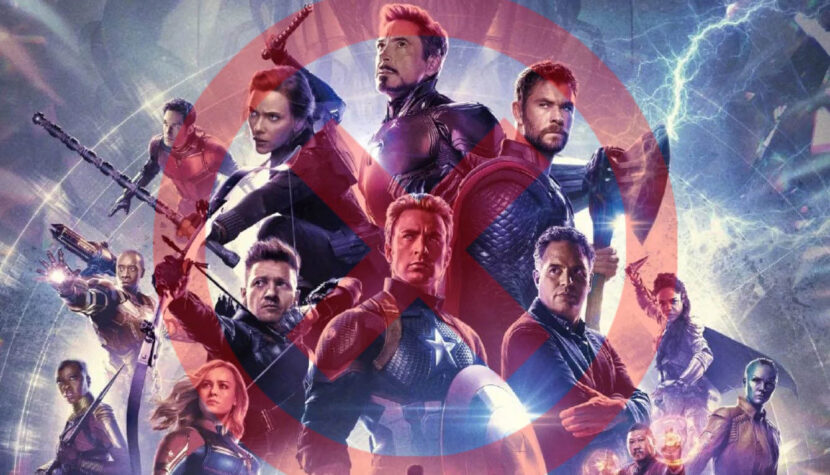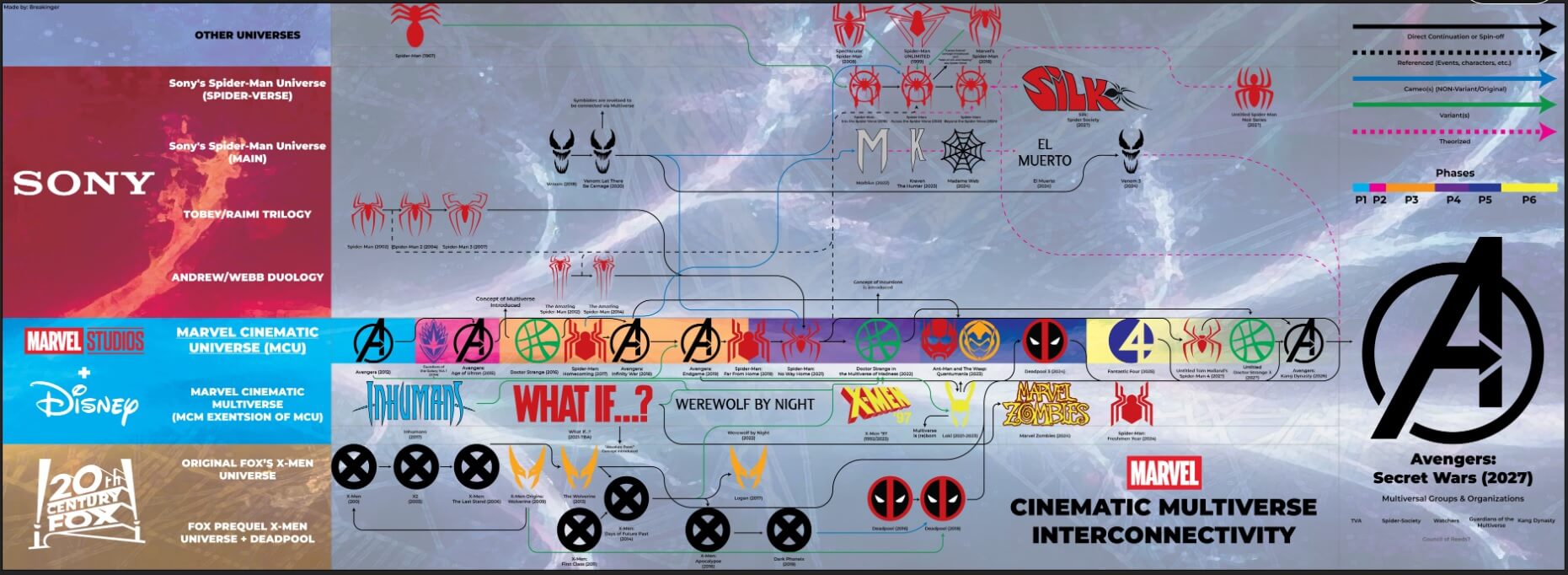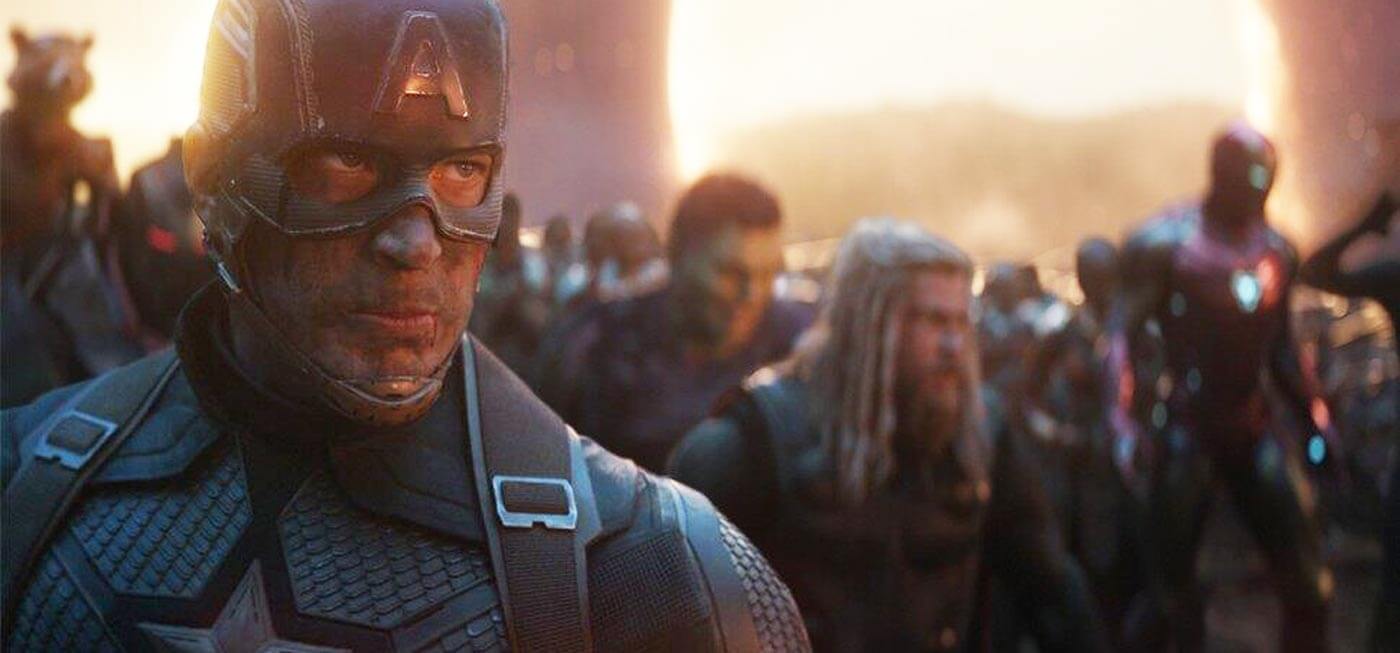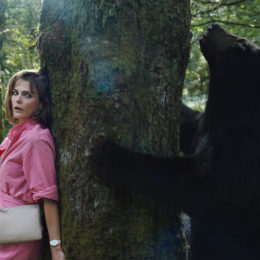The time has come to say ENOUGH! Why should the MCU have ended with “Endgame”?

I couldn’t finish watching the third Guardians of the Galaxy. I also turned away from the second season of Loki. It’s better than my experience with Hawkeye, which I abandoned after a few episodes. I completed WandaVision more out of obligation, as a prelude to the second Doctor Strange, but I stopped watching Secret Invasion after just two episodes because it simply bored me and wasn’t necessary. As for She-Hulk, sorry, but I didn’t even start. The third Ant-Man? Who cares.
We stand before a momentous event. The giant began to waver because its legs turned out to be made of clay. Before our eyes, the grand project of the Marvel cinematic universe is slowly coming to an end because viewers simply lost interest. Marvels will soon hit the big screen, and I predict with conviction that it will seal what we have been observing for a long time but are afraid to call by its name – that Marvel is showing us its back. I don’t remember a situation where such a widely advertised film, resulting from an incredibly profitable film series, was so evidently doomed to financial failure.

What went wrong? Before I answer that question, I would like to emphasize that for a long time, I resisted signing under Martin Scorsese’s words, who described Marvel movies as rollercoasters. I like popular cinema. I like to find in it something less obvious – a universal value that provides not only entertainment but also a solid dose of contemplation on life. Marvel provided that. The project, successfully crafted since 2008, from the release of the first Iron Man, was something the pop culture hadn’t seen on such a scale before. It marked an era not only of spectacularly continuing a linear idea but also of creating a broadly conceived map of scattered points represented by individual heroes, all focused around one goal. Thus, the cinematic universe was created, simultaneously translating comic practices into the language of cinema in its most perfect form.
Related:
Fifteen years have passed, and evidently, the child has rebelled against its parent. Instead of arousing pride and being the creator of successes, it decided to bring only disappointments. We are witnessing an obvious crisis in the MCU (which also affects its rival from across the border, the DCU). The successive films released do not achieve satisfying results in theaters, quickly ending up on the Disney+ platform dedicated to them. Meanwhile, the series, considered as branches of the main series, briefly raised hopes for something original (it’s hard not to call the first season of Loki that), introduced new antagonists, and promised to bring fresh air to this world. However, something reversed, and from my perspective, instead of freshness, we observe the gradual disintegration of what was once a tight plot into fragments. The effect, at least for me, is yawning, squirming, and quickly losing interest.
There are two reasons for this state of affairs and the growing prejudice against Marvel’s subsequent products. Surprisingly, one of them is not material fatigue or – as some may prefer to call it – superhero fatigue. As experiences with The Boys, Peacemaker, or the animated Invincible show, changing the formula changes the perspective. From the grand balloon of thunderous stories about heroes fighting evil, it was enough to let out some air, start ironizing, sometimes even openly mocking the frozen genre’s clichés to continue captivating the audience with stories about men (and women) in tights. However, Marvel remained uncompromising in its inflation, which apparently started to go awry with people.

But – as I mentioned – I wouldn’t attribute the decline to that. I would rather point out that the peculiar “mind map” that formed over the years of accumulating new threads and narrative connections has grown after fifteen years to dimensions that cannot be grasped with a single thought. If we can count, we know that during this time, the audience generation has changed. Those who grew up with Iron Man started families and began living, no longer being the main source of income for cinemas. The new generation, which entered the theaters around Endgame, or the fourth phase of the MCU, already struggled to find its place in a project whose individual episodes required knowledge of not only the entire history but also several other related films or series thematically linked. In a justified manner, this was seen as a money grab because how else to describe the requirement for someone wanting to buy a ticket for the third Guardians of the Galaxy to also spend a few dollars on Disney+ access for a better understanding of the film.
The second reason is even more prosaic. Regardless of the fact that certain myths persist in popular culture incessantly, a specific story should have a beginning and an end if we want it to have any meaning. The ideal moment was the finale of the mentioned Endgame – you could feel the stakes here, unlike what you can feel now. Unfortunately, Disney’s accountants decided that such a spectacular financial success is something they shouldn’t pass up. The creators of the MCU thus gave the audience to understand, drawing mainly from the experiences of TV series, computer games, and comics, that the end is synonymous with something sad. Therefore, not wanting to inflict such sorrow on the audience, they will continue to expand the MCU as long as we keep spending money on it. Sketching new threats on the knee and forcibly continuing some plotlines, flirting with the audience with an R or TV-MA rating (see the Echo trailer), just to keep the carousel turning.

Therefore, rumors from across the ocean that there might simply be no more phases are justified. That creators may soon opt for a hard reboot, and certainly, wanting to take less risk, they will allocate significantly less money to the spectacles (as evidenced by the example of the upcoming Blade). In my opinion, if the hero from whom all this fun started dies, it’s time to say – we’ve done it, it’s time to part ways. Every subsequent project released after such a perfectly crafted climax will be nothing more than remnants of a great story. Time to swallow the bitter pill and acknowledge the title of the last noteworthy film in this world. The game is over.





